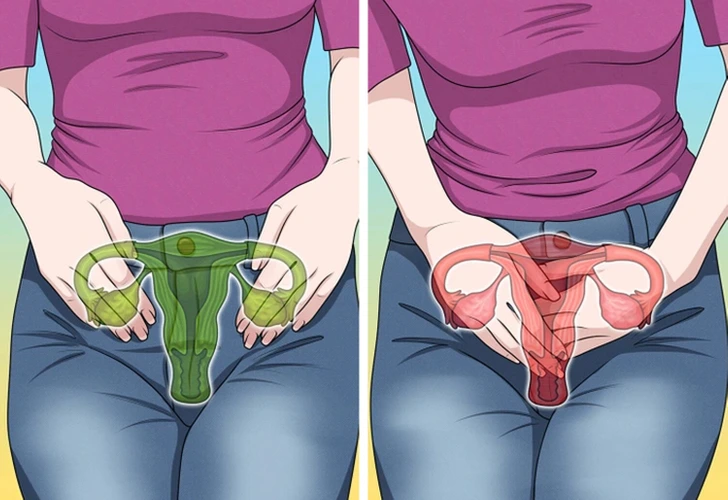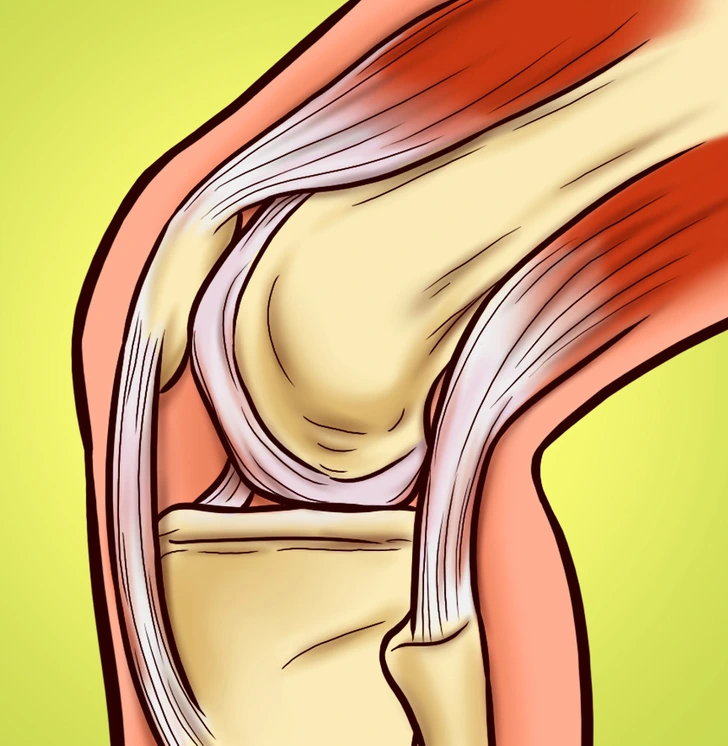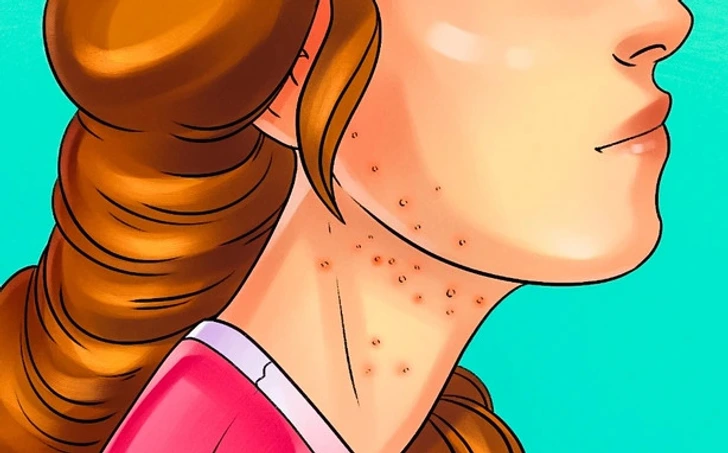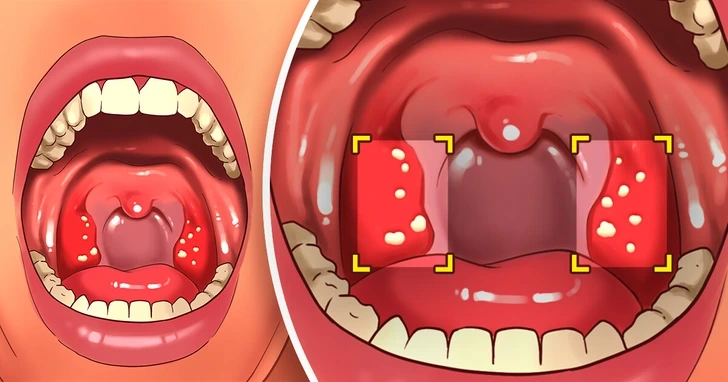Gluten can cause significant health issues, often without clear warning signs, leading to long-term damage. Understanding your body’s reaction to gluten is essential for your well-being.
1. Fatigue and brain fog

People with gluten sensitivity often experience fatigue and brain fog, including difficulty concentrating, which can last for hours or days after consuming glute
2. The loss of eyelashes
Gluten intolerance, particularly in conditions like celiac disease, can cause hair loss, including eyelashes. Gluten-induced damage to the small intestine can also lead to nutrient malabsorption, resulting in deficiencies in vitamins and minerals essential for healthy hair growth.
3. Issues with the digestive system

Gluten sensitivity often causes digestive symptoms like nausea, bloating, diarrhea, abdominal pain, and constipation. These are frequently misdiagnosed as irritable bowel syndrome (IBS), delaying proper treatment for those with gluten sensitivity.
4. Headaches and migraines
Frequent headaches or migraines may indicate gluten sensitivity. Although headaches are common, those caused by gluten tend to occur more often and with greater intensity.
5. Weight changes

Gluten intolerance can cause unexpected weight fluctuations, including both weight loss and gain. This is often due to inflammation and disrupted metabolism, especially when accompanied by symptoms of nutrient malabsorption like fatigue, digestive issues, or vitamin deficiencies.
6. Hormonal imbalance issues

Gluten intolerance is linked to hormonal imbalances, causing irregular periods, weight changes, PMS, and sleep disturbances. These issues are particularly common in women during stages like puberty, pregnancy, and menopause, suggesting a gender-specific effect on hormonal health.
7. Joint and Muscle Discomfort

Unexplained pain in the joints and muscles, especially after eating gluten, is another possible sign. This pain is often described as a deep, persistent ache and can affect various joints at once.
8. Skin and Nail Issues

Gluten sensitivity may also lead to skin problems like eczema, psoriasis, or a rash called dermatitis herpetiformis. These conditions tend to improve or disappear when gluten is eliminated from the diet.
9. Attention deficit hyperactivity disorder

ADHD, marked by short attention spans, impulsivity, and self-regulation issues, may be linked to gluten intolerance. Research suggests a gluten-free diet might help reduce ADHD symptoms, especially for those with gluten sensitivity.
10. Poor condition of the teeth
Gluten intolerance can hinder nutrient absorption, including calcium, which is crucial for oral health. This can lead to issues like tooth sensitivity, decay, cavities, and mouth ulcers. Persistent dental problems despite good hygiene may signal gluten sensitivity.
11. Iron deficiency anemia
Iron deficiency anemia is often linked to celiac disease, caused by gluten intolerance that damages the intestines and prevents iron absorption. Symptoms include fatigue, shortness of breath, headaches, pale skin, and joint pain. Even with a diet rich in iron, the body struggles to absorb it due to this condition.
12. Mood Disorders
People with gluten sensitivity often experience anxiety, depression, and frequent mood swings. While the exact reason remains unclear, researchers suggest that gluten may disrupt the gut-brain connection, influencing mental well-being.
13. Autoimmune Diseases
Gluten intolerance is often linked to autoimmune diseases. Celiac disease occurs when the immune system attacks the intestines in response to gluten, leading to digestive and systemic issues. It also increases the risk of other autoimmune conditions like thyroiditis, Crohn’s disease, diabetes, vitiligo, rheumatoid arthritis, and multiple sclerosis, highlighting a deeper connection between gluten and immune dysfunction.
14. Tonsil Stones

Though not widely studied, many people with gluten sensitivity report frequent tonsil stones—small debris collections in the tonsils. Interestingly, switching to a gluten-free diet often reduces or eliminates them, suggesting a possible link between gluten consumption and tonsil stone formation, though further research is needed.
15. Hair Loss

Gluten sensitivity, especially in celiac disease, can contribute to hair loss due to nutrient malabsorption (iron, zinc, biotin) caused by intestinal damage. Additionally, the autoimmune response may attack hair follicles, leading to alopecia areata (patchy hair loss). A gluten-free diet has been linked to improved hair health in those affected.
How to Treat Gluten Sensitivity
- Get Tested: Consult your doctor for a blood test to check for antibodies linked to celiac disease. For accurate results, avoid eliminating gluten before testing.
- Remove Gluten from Your Diet: Avoid foods like wheat, rye, bulgur, flour, and semolina. Always check labels and opt for gluten-free products.
Gluten sensitivity isn’t the only hidden health concern. Have you noticed a white coating on your tongue? It could indicate an underlying issue. Stay tuned to learn what it means and how to treat it naturally!
